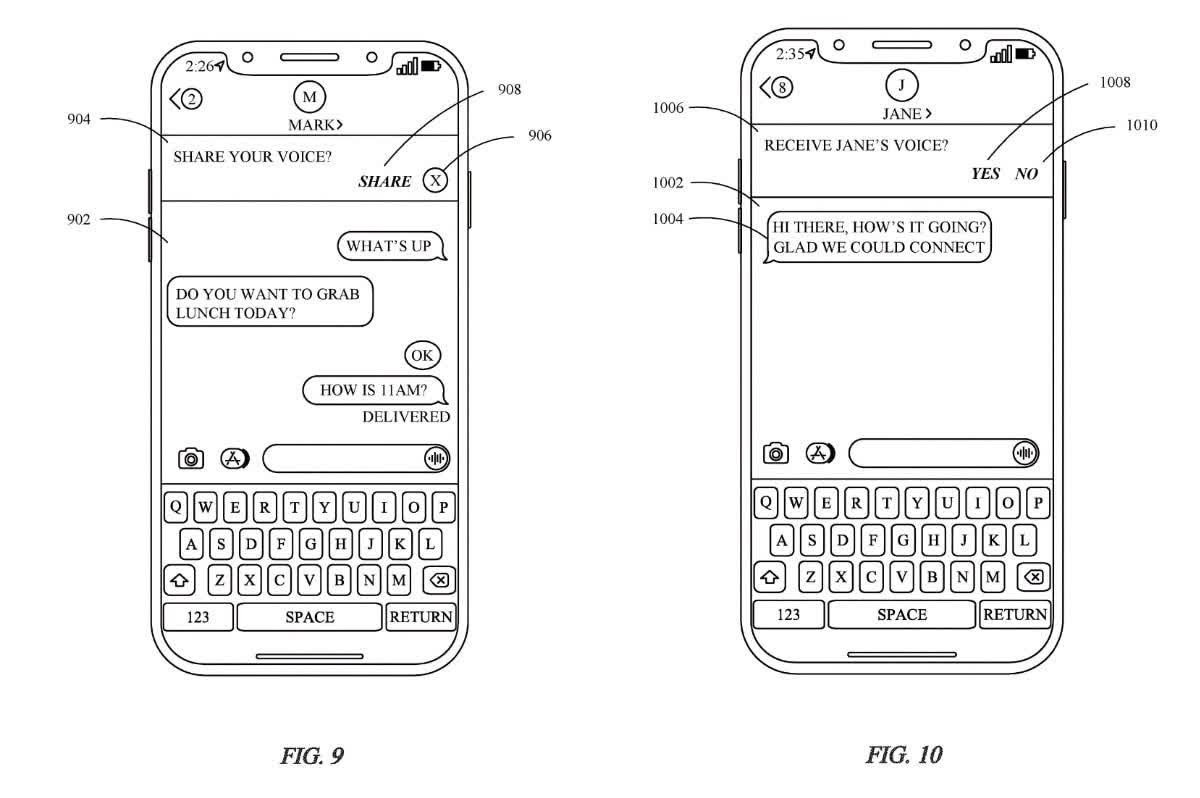Forward-looking: Apple has filed a patent that could allow an iMessage to be read aloud in the sender's own voice, which would be an improvement over other methods of creating audible messages, such as sending audio recordings or using Siri to speak the text.
AppleInsider spotted the patent, titled Personalized Voices for Text Messaging. Filed on October 25, 2022, it describes a voice model that is provided to a second electronic device. "In some examples, a message is received from a respective user of a second electronic device," reads the patent.
Essentially, the system would involve an iMessage user choosing to attach a voice file, which would be stored on their device, when sending a text to someone. If the sender chooses to do so, the recipient would then have the option of hearing the message read aloud in the sender's voice. "Based on the voice model, an audio output corresponding to the received message is provided," the patent explains.
The iPhone receiving the message could build a profile of the person's voice and simulate it when reading the message and all new correspondence from the same sender. Someone could even send their voice model before delivering the first message in preparation for their messages to be read in their voice.
Being able to hear messages in the sender's voice might not seem like the most pressing technical advancement, but it would likely be welcomed by older family members and partners/spouses who want to hear loved ones' messages spoken aloud as if they were in the same room.
The patent's inventors are Qiong Hu, who formerly worked on Siri; Jiangchuan Li, a senior Siri software engineer for machine learning at Apple; and David A. Winarsky, Apple's director of text-to-speech technology. As with all patents, there's no guarantee this one will end up becoming an actual feature, but Apple's recent voice AI-related acquisitions and endeavors suggest it will happen.
News of the patent comes soon after Apple launched its new program to sell audiobooks with AI-based voiceovers. It's causing anger among voice actors as Findaway Voices, an audiobook distributor, gave Apple permission to use its audiobook files to train the machine learning model employed for Cupertino's audiobooks program.

